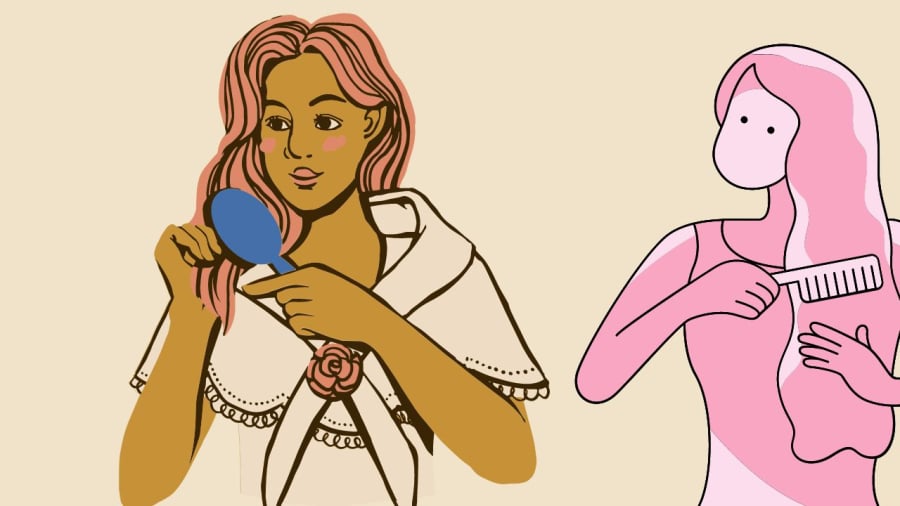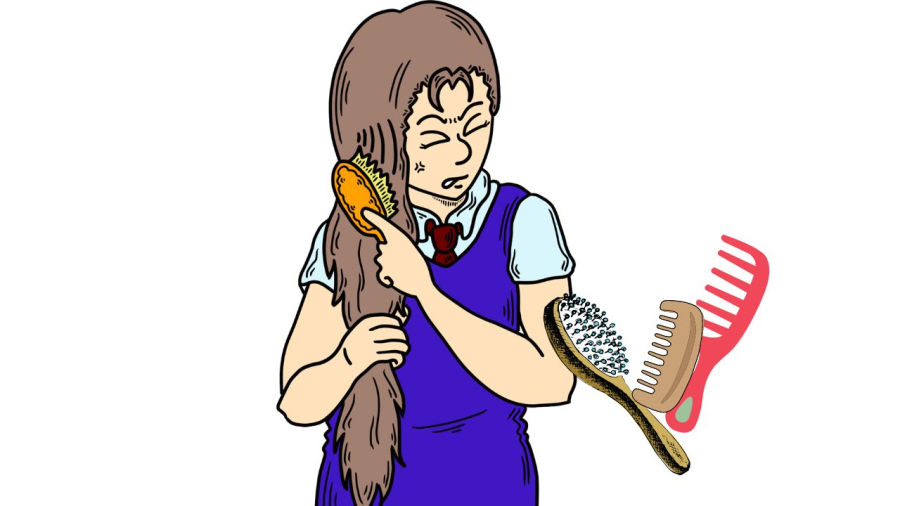Combs are personal items and should not be shared.
Combs are used to groom hair, and they can retain sweat, scalp oils, lice, and fungi. As such, combs can carry unique characteristics of their owners. Sharing combs can lead to the spread of skin infections, particularly fungal infections, lice, and nits. In the past, skin infections of the scalp were more common than they are today. Many people struggled with difficult-to-treat fungal infections, resulting in hair loss and irritating itching.
Therefore, both lending and borrowing combs are discouraged, as it may spread infections. It can also affect the relationship between the lender and borrower, as any resulting infection may cause blame and resentment. If one must borrow a comb, it is advisable to clean and dry it before use and then clean it again before returning it. Similarly, if you lend your comb, it is advisable to clean it before using it again.

Combs are personal items and should not be shared.
Like towels, combs are considered intimate items, and sharing them may be perceived as unhygienic and impolite. In the past, it was considered impolite to ask to borrow a comb, and doing so could strain the relationship between the asker and the owner. Therefore, it is best to avoid borrowing or lending combs unless absolutely necessary. A simple comb should not cause complications in relationships or lead to the spread of infections.
The Spiritual Significance of Combs
In folklore and spiritual stories, combs are often associated with the spiritual realm and negative entities. In ghost stories, a comb may serve as a connection to the other side. Folk beliefs also include superstitions about combing hair, such as avoiding it when traveling by bus or at night. A broken comb or hair loss while combing is considered an omen of bad luck.

Combs and their spiritual associations.
Lending a comb may evoke these spiritual associations, which are not always pleasant. Therefore, from a practical and spiritual perspective, it is best not to share combs. Be direct and decline politely if someone asks to borrow your comb, and avoid borrowing combs yourself unless it is an emergency. A comb should not be the cause of complications and spiritual unease.
Additionally, when using a comb, maintain good hygiene by regularly cleaning it to ensure your hair stays healthy. It is also advisable to avoid combing your hair while traveling or at night.
Reference: Personal experience and observations
8 Common Mistakes People Make with Cutting Boards
Are you using your cutting board correctly? Many Vietnamese households rely on cutting boards in their kitchen, but not everyone knows how to use them properly, especially when it comes to wooden cutting boards. Check out these 8 mistakes to avoid when using a cutting board to ensure both hygiene and safety for everyone in your family.



































